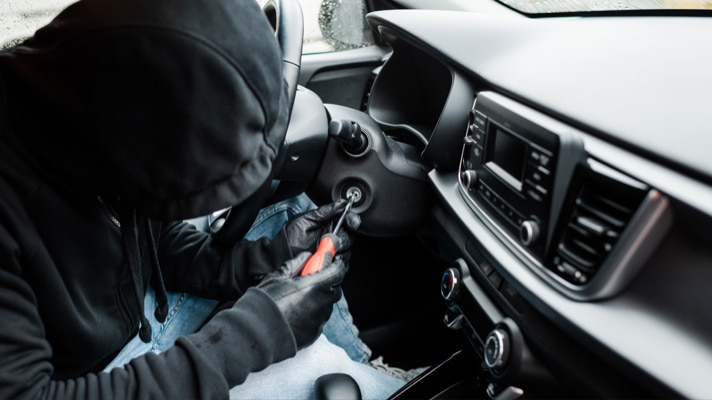On average, in California, nearly 200,000 vehicles are stolen each year. Generally, a real vehicle owner would not be liable when their vehicle is stolen and used in some other negligent or intentional act that harms people or property. To be responsible for someone else’s actions with your motor vehicle, you must have caused the damage in some way, which is rare, or you entrusted (gave permission) to the thief to use your vehicle, which is highly unlikely.
In California, vehicle owners can be held liable for the actions of a third party if they entrusted, or gave permission to use, the vehicle to a third party who is unfit to drive, and that third party then harms someone or something. Entrustment is one way you may be liable for your vehicle being stolen and causing damage. This is one of many reasons why it is recommended to file a police report as soon as you learn that your vehicle has been stolen. Then, file a claim with your insurance company, notifying them of the theft and any damages that may have been incurred to your property. You do not want people to think you gave the thief permission to use your car.
If you are not liable for your vehicle harming others, then who or what is liable? Well, typically, the first place an injured party would look is to the driver. In this case, a thief can be liable for the damage they cause, but in most scenarios, the thief is either:
- unable to be found,
- uninsured, or
- has no money to pay for the damage they caused. So even though they are liable for the damages, the parties involved should be looking elsewhere to get compensation for any damages they incurred.
Which leads us to a very important part of your question, who pays for this type of damage?
Who pays for damage caused by a stolen vehicle depends almost entirely on what type of insurance policies the involved parties have and what those insurance policies cover. The first option would be to seek coverage through any of the thief’s insurance policies if they have any. This is done by setting up a claim with their insurance. The victim of the theft can file a claim for property damage, and the victim of any injuries caused by the driver of the stolen vehicle can file for personal injury and property damages. If it gets complicated, you should talk to an attorney who can help you navigate the insurance world.
In most cases, the thief either has no coverage or does not have enough coverage, so the parties involved will have to look to their insurance policies to find coverage. In some circumstances, the injured parties don’t have any recourse for the damages to be covered. If this is the case, speak to an attorney to see if anything may exist before giving up.
Vehicle liability insurance
Most commonly, especially in California, people carry vehicle liability insurance. Liability insurance generally covers bodily injury and property damages caused to other parties when you are at fault in a collision. This insurance type does not cover your damages when you are liable and does not typically apply to a stolen vehicle in any situation.
Uninsured / Underinsured motorist coverage
Another form commonly found within liability insurance is Uninsured / Underinsured motorist coverage. This acts similarly to liability insurance but can cover you when someone else causes injury to you but does not have enough insurance to cover the costs. If a thief driving a stolen car damages someone else in an accident, the company insuring the stolen car will not compensate the injured party because the car was taken without consent. With uninsured/underinsured motorist coverage, the injured party’s insurance company may pay the costs to them if coverage applies. If you are injured by a negligent driver of a stolen vehicle, this insurance will likely cover you. But, if your vehicle is the stolen property, it is unlikely that this will cover the damage to that car.
Collision coverage
Collision coverage is a type of insurance that may be able to cover your property damages in the event of a stolen vehicle but is unlikely to cover others’ damages and certainly won’t cover any possible medical expenses from the incident. Comprehensive insurance offers coverage for theft and damages not caused by a collision. This would cover you, but not others, for the cost of repair or replacement if your vehicle is stolen.
The result of a stolen vehicle causing damage is often stressful and difficult to navigate. Although insurance may cover the damage, it tends to be an uphill battle to find any coverage when the damage is caused by a criminal act. We recommend talking to an attorney who is experienced in this field if it ever occurs to you.
For more information on insurance, click here.









